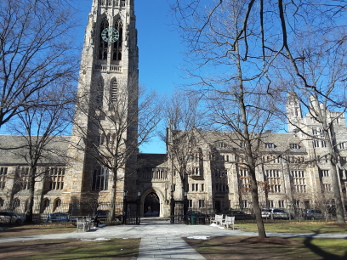Education
College doesn’t prepare students to work – report
College today does not prepare students for the workplace, even assuming that the graduate can find a job in his major.

A new and damning report says that college does not prepare its students for the rigors of the non-academic workplace. Furthermore, college does not give the student the job-specific skills or experience he needs. The situation has led one professor actually to say that one doesn’t need college.
College – who needs it?
Bob Unruh at WorldNetDaily wrote yesterday about the report, which comes from The Washington Times. The report quoted several surveys of small-business owners who actually make hiring and firing decisions. Other surveys questioned some of those new hires, and asked them whether college prepared them for the most important part of any career: actually going to work.
The answer: no. Almost half of recent hires said their campus life did not prepare them for working 9 to 5. There, deadlines are as non-negotiable as they are tight – not so on campus, or at least not as strictly.
Two-thirds of small-business owners in another survey said that those who show up with degrees, simply lack the skills to be any good at a job.
The head of the job-recruiting firm RedBalloon gave the most scathing indictment. “The higher ed system has worked itself out of a job,” he said.
By losing focus on the mission of preparing their students for their career, they’ve become a non-factor, or even a negative factor, in helping job seekers find a job. Andrew Crapuchettes, CEO, RedBalloon
This situation has become more acute in the technical industry. Apparently some tech graduates feel entitled to a high salary with flexible hours. When they join the workforce, they learn differently – an expensive lesson for them and for employers who waste their time with them. Result: experience, not nominal education, counts.
Graduates do not always come by that sense of entitlement on their own. Their professors tell them they’re entitled.
Sam Kain, Professor of Finance at Walsh College in Michigan, said flatly: people don’t need a degree anymore.
You read it here first
Five years ago, in the context of the first student-loan forgiveness promises by Democratic Party Presidential candidates, CNAV warned of that very thing. Of course, Biden won – though how he won is debatable. What is not debatable is that he tried to forgive student debt at the stroke of a pen. Thus far the Supreme Court of the United States has told him no – in no uncertain terms.
Even apart from the student-loan question is what kinds of jobs college prepares a student even to apply for. The dangerous sense of entitlement that even the engineering schools (or departments) are fostering is something new. That sense doesn’t exist, for example, in medical training, which is largely a vast organized apprenticeship.
But beyond the STEM (Science, Technology, Engineering, and Mathematics) fields, most majors prepare students to take their professors’ places – and given typical class sizes, that’s a non-starter for the overwhelming bulk of them. Careers outside the academy – at least for non-STEM majors – are rare.
This Washington Times report confirms what CNAV said five years ago: most people don’t need college.
Terry A. Hurlbut has been a student of politics, philosophy, and science for more than 35 years. He is a graduate of Yale College and has served as a physician-level laboratory administrator in a 250-bed community hospital. He also is a serious student of the Bible, is conversant in its two primary original languages, and has followed the creation-science movement closely since 1993.
-

 Civilization1 day ago
Civilization1 day agoWhy Europe Shouldn’t Be Upset at Trump’s Venezuelan Actions
-

 Accountability4 days ago
Accountability4 days agoWaste of the Day: Principal Bought Lobster with School Funds
-

 Executive2 days ago
Executive2 days agoHow Relaxed COVID-Era Rules Fueled Minnesota’s Biggest Scam
-

 Constitution3 days ago
Constitution3 days agoTrump, Canada, and the Constitutional Problem Beneath the Bridge
-

 Christianity Today1 day ago
Christianity Today1 day agoSurprising Revival: Gen Z Men & Highly Educated Lead Return to Religion
-

 Civilization2 days ago
Civilization2 days agoThe End of Purple States and Competitive Districts
-

 Executive2 days ago
Executive2 days agoWaste of the Day: Can You Hear Me Now?
-

 Executive3 days ago
Executive3 days agoWaste of the Day: States Spent Welfare in “Crazy Ways”












